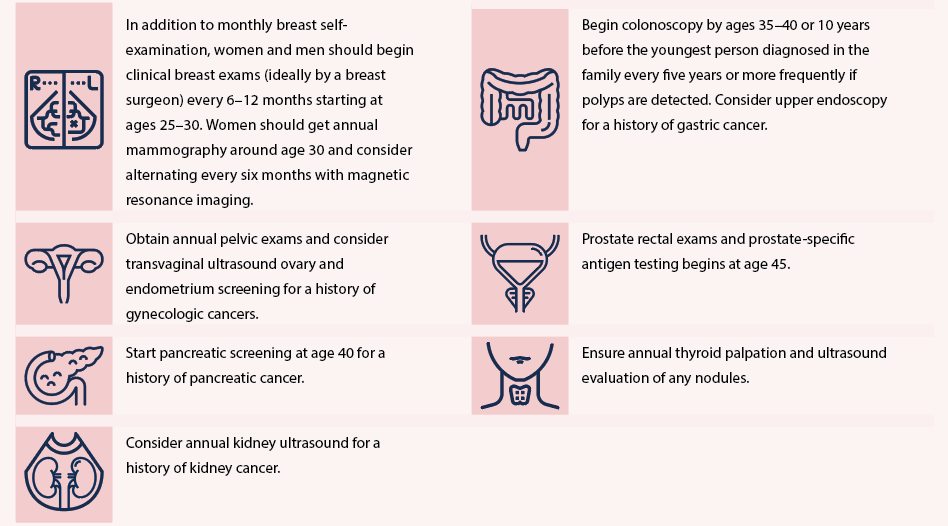Genetic Disorder Reference Sheet: CHEK2 Gene Pathogenic Variants
The CHEK2 (checkpoint kinase 2) tumor suppressor gene provides cells with instructions for making a protein known as CHK2, which becomes active when the cell’s DNA is damaged or strands of it break. CHEK2 halts cell division and enables either cell repair or destruction. Without a properly functioning CHEK2 gene, cells lose a key restraint on their growth which may lead to uncontrolled cells and possibly malignancy. CHEK2*1100delC is the most common (https://doi.org/10.1007/s10689-018-0070-x) pathogenic variant and most prevalent in European populations.
Cancer Risks
Germline CHEK2 pathogenic variants are associated (https://doi.org/10.1007/s10689-018-0070-x) with an increased risk for developing a variety of cancers, including female and male breast, colon, prostate, gastric, pancreatic, kidney, and thyroid cancers and, less commonly, brain tumors and sarcomas.
The CHEK2 gene is considered (https://doi.org/10.1200/jco.20.00299) a moderate risk penetrance gene, meaning that a person who carries a pathogenic variant has a two- to threefold increased risk of developing a malignancy than someone without it. Genetic counseling for those individuals is challenging because their risk is elevated, but the exact extent varies depending on the pathogenic variant and family history. A detailed family medical history is essential to identify potential risks and guide screening recommendations.
For example, a woman with a pathogenic CHEK2 variant has an estimated 17%–40% (https://www.nccn.org/store/login/login.aspx?ReturnURL=https%3A//www.nccn.org/professionals/physician_gls/pdf/genetics_bop.pdf) overall risk of developing breast cancer, compared to 12% in the general population. Women with a breast cancer diagnosis or a strong family history of breast cancer may consider risk-reducing mastectomy. No consensus guidelines are available (https://ascopubs.org/doi/10.1200/JCO.20.00299), and shared decision making is important (https://www.nccn.org/store/login/login.aspx?ReturnURL=https%3A//www.nccn.org/professionals/physician_gls/pdf/genetics_bop.pdf).
The specific pathogenic variant may also influence risk. The I157T pathogenic variant, another common CHEK2 variant, is associated (https://www.nccn.org/professionals/physician_gls/pdf/genetics_colon.pdf) with a higher risk for developing colon cancer.
Nursing Implications
Individuals with a pathogenic CHEK2 variant require ongoing screening. Knowledge about how pathogenic CHEK2 variants affect prognosis is emerging. CHEK2*1100delC carriers tend to develop (https://doi.org/10.1200/JCO.2016.66.5844) ER-positive tumors, have a worse overall survival, and are at higher risk for contralateral breast cancer, which might affect surgical decision-making. Because the exact risks are not fully understood, screening recommendations involve family medical history. Regular consultation with a genetics professional enables carriers to stay updated on current recommendations.

Note. Based on information (https://www.nccn.org/professionals/physician_gls/pdf/genetics_bop.pdf) from National Comprehensive Cancer Network (https://www.nccn.org/professionals/physician_gls/pdf/genetics_colon.pdf) and Tung (https://doi.org/10.1038/nrclinonc.2016.90) et al (https://doi.org/10.1200/jco.20.00299).
